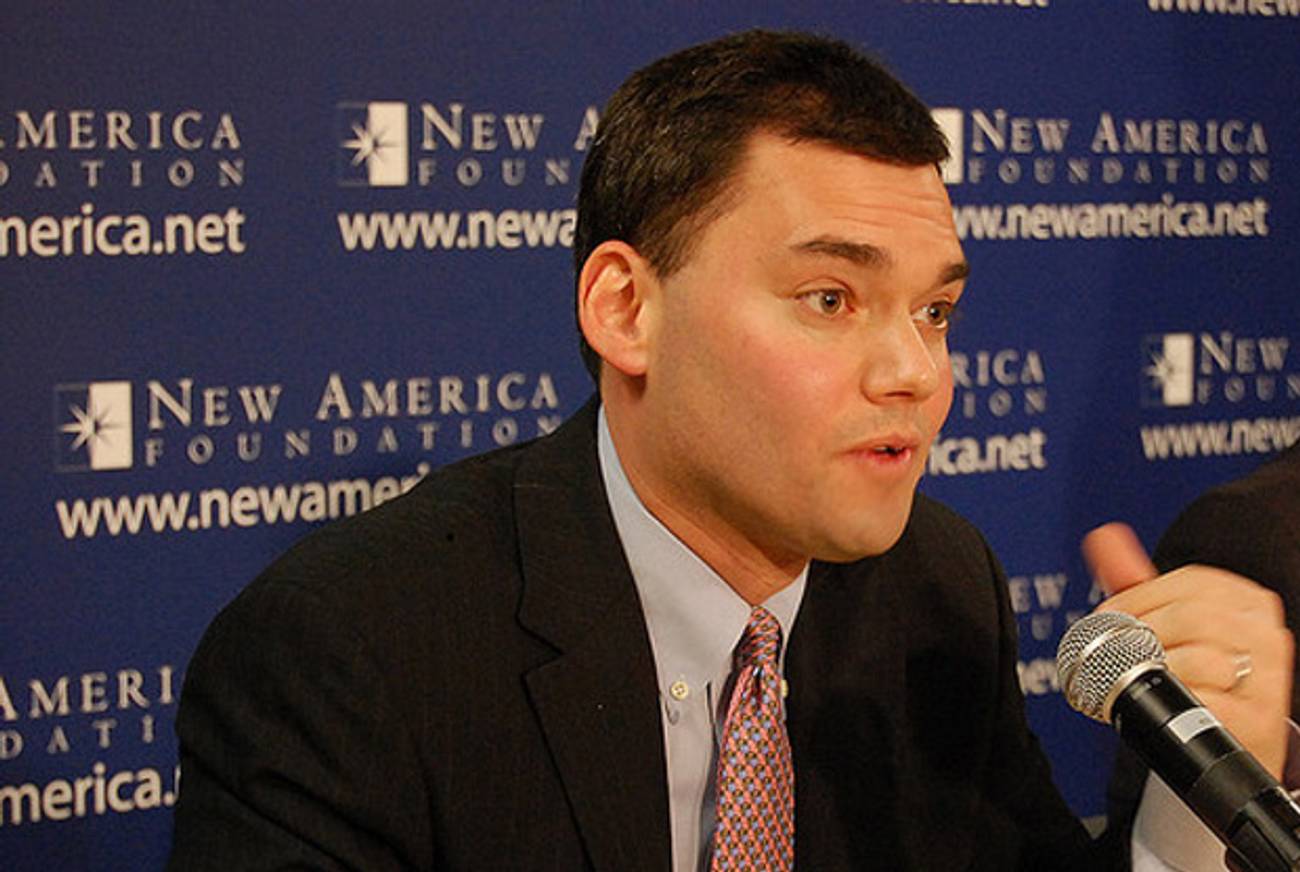Open Zion Funder Questions Beinart Approach
Peter Joseph, of Israel Policy Forum, condemns ‘oversimplified rhetoric’




Jason Zengerle reports that Peter Joseph, “a prominent liberal Jewish philanthropist,” helped fund Peter Beinart’s Open Zion blog at The Daily Beast (through the New America Foundation, where Beinart is a senior fellow). Joseph, who is in private equity, is most associated with the Israel Policy Forum—he is president—a liberal group that takes much the center-left positions you would expect but which, I am told, is increasingly trying to make itself into something more reflective of its name: not strictly an advocacy group, a la J Street, but an actual, well, policy forum, like a think tank, albeit one that does believe certain center-left shibboleths about Israel and the peace process. IPF told me this morning that it has no connection to Open Zion.
Joseph has been disappointed in the reception to Beinart’s The Crisis of Zionism, he tells Zengerle: “Unfortunately what I’ve seen is the book has led to greater polarization, and that doesn’t serve Israel’s best interests.”
But a month ago, Joseph, while emphasizing he has “very high regard” for Beinart, seemed in part to blame Beinart for this polarized reception, telling me: “I would not have used boycotting as a way of advancing my agenda—that I thought was somewhat provocative, and didn’t advance his cause per se.”
(Update, 12:45pm) This afternoon, Joseph elaborated on his take, confirming that he did fund Open Zion but in a personal capacity, and not through IPF. “These are two different projects,” Joseph said. “Open Zion is a clearinghouse for dialogue on this issue—on a variety of issues confronting the American Jewish community. In that respect I am very happy to support an effort to increase understanding and exchange of ideas. And Peter is open to a very broad range of opinions. He’s not looking to impose, as I understand it, some kind of a standard here in terms of what’s accepted.” But, Joseph continued, “The book and the op-ed piece are really different matters. There I thought there was much to be critical of. The boycott is the clearest example.” He added: “Peter and I are in regular contact. I’ve made my views known to him. And we have an ongoing conversation—and that’s what this is.” Indeed it is!
I had called Joseph last month after he published an op-ed on JTA decrying precisely this polarization, without naming any names. “Instead of staking out principled, nuanced positions that reflect an understanding of competing narratives, both sides have adopted an oversimplified rhetoric that feeds fierce debate in the American Jewish community and shrinks political space for pragmatic policy,” he argued, adding, “The past few weeks of mudslinging have highlighted how alienating and polarizing many of the tired left- and right-wing arguments about Israel have become. Enough already!”
As I argued last month, I think it’s a shame that Beinart’s book did not make its way into the wider conversation in the same way that it made its way into ours, but I do wonder whether that’s partly his fault. What if he had excerpted his chapter on Prime Minister Netanyahu’s intransigence instead of his call for Zionist B.D.S.? Things might have gone differently.
Then again, what if the New York Times Magazine had agreed to publish his initial essay instead of letting it slip to the New York Review of Books, which was guaranteed to make it more controversial?
Either way, the distancing of someone like Joseph is an indicator that—as of now—Beinart has not had the impact on the discussion he might have wished.
Related: Moderate Middle Must Be Heard on Israel Debate [JTA]
The Israeli Desert [NY Mag]
Earlier: Beinart Gets Rare Non-Inside Baseball Treatment
Marc Tracy is a staff writer at The New Republic, and was previously a staff writer at Tablet. He tweets @marcatracy.